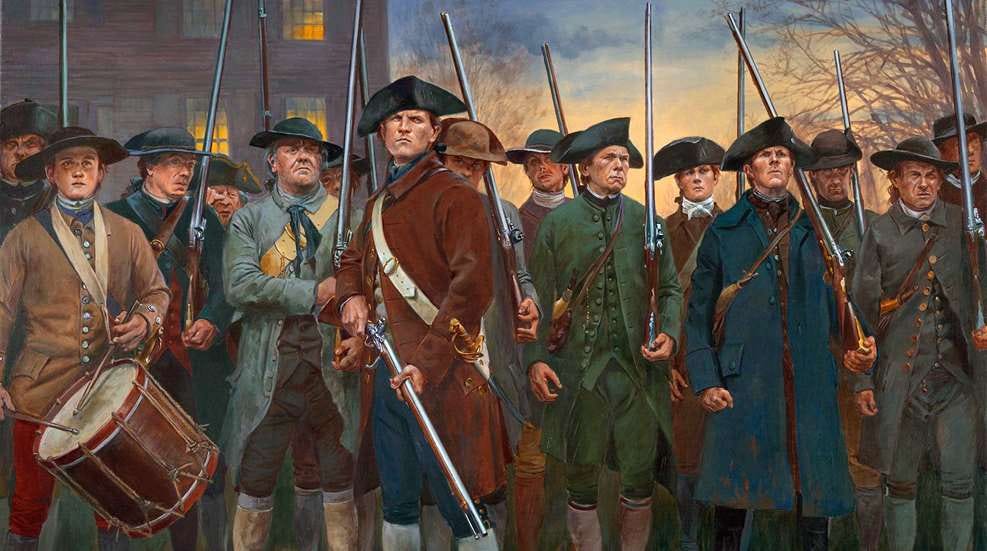A Cry of Defiance and Not Fear
Paul Revere's ride didn't awake an army, he awoke simple farmers and laborers who stood against an army, trusting in the strength of their convictions.
One of the lines in Henry Wadsworth Longfellow’s poem “Paul Revere’s Ride” that has always stuck out to me is the following:
So through the night rode Paul Revere;
And so through the night went his cry of alarm
To every Middlesex village and farm, —
A cry of defiance and not of fear,
A voice in the darkness, a knock at the door,
And a word that shall echo forevermore!
It’s so easy for us with the cushion of 250 years to take for granted the triumph of that April morning. We often speak of the Battles of Lexington and Concord, and the broader American Revolution, as if history simply dictated American success. I think we too frequently fail to consider that, more often than not, in our nation’s struggle for liberty, survival, let alone success, hung by a thread.
In the dark of night, the British regulars had arisen from their military barracks and assembled in neat rank and file, armed and disciplined as part of the greatest military fighting force of the age. Meanwhile, the minutemen and colonial militia who answered Revere’s cry arose from their beds in the early hours of the morning, kissing their wives and hugging their children, before reaching for the rifles and muskets they had mostly used for hunting, some of them passed down from fathers and grandfathers.
The colonials were not military men. They were not soldiers. They belonged to their local militias as a matter of course, a duty owed by freemen to safeguard and protect their communities. Some of them were veterans of the French and Indian War, but most of them had never fired a shot in anger. And even as they arose that morning, most of them balked at the idea of armed confrontation. There were a few hotheads who wanted confrontation, but most were prepared simply to assemble and demonstrate their conviction in the face of British tyranny.
But there was no fear. They were men of principle, men of conviction. They believed God had given them rights and that no far-off King nor Parliament could take those rights away. They did not consider the odds against them. They only cared about what was right, and they chose to stand for what was right. Let the British march on our roads, let them demonstrate their power and their military might, they thought, but let them see, as they do so, the ranks of freemen assembled on the greens and the fields, gathered peacefully but with conviction, showcasing their defiance, that they would not submit out of fear for retribution.
And when the unimaginable happened, when the political disagreements between Britain and her colonies descended into a firestorm of smoke, lead, and blood, these simple colonialists held to the strength of their convictions and fought back; they took part in a miracle. Not only did they stand and fight, they forced the British to break and run.
If we remember anything from our commemoration of that April morning when freemen arose to defy an empire, it is that conviction matters more than the odds. Standing by truth and principle has a power and majesty that confounds the calculations of mere men.



